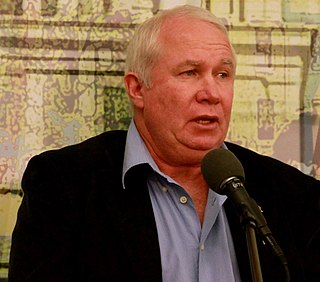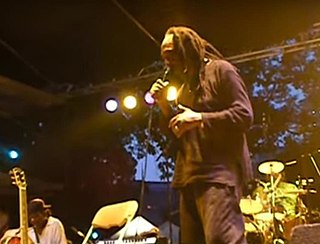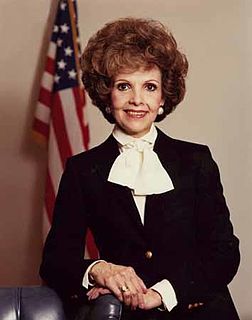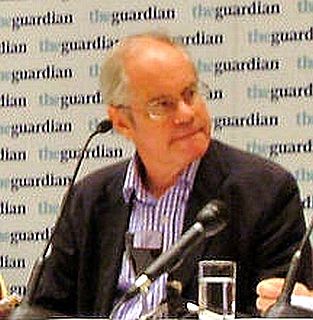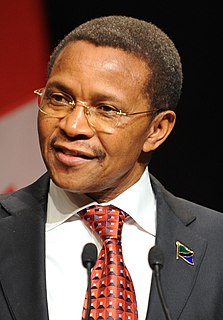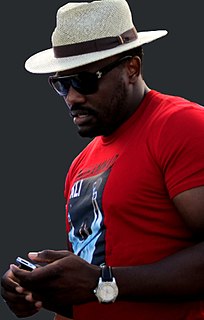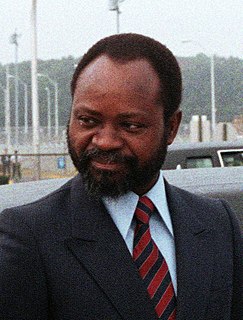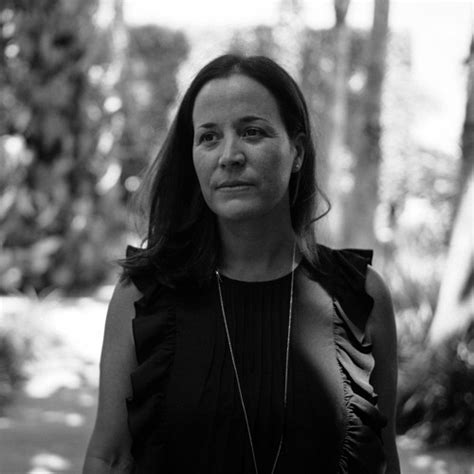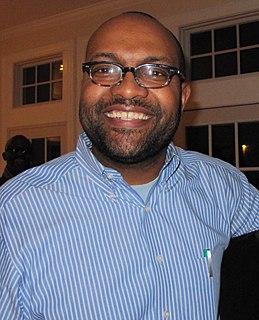Top 104 Zimbabwe Quotes & Sayings - Page 2
Explore popular Zimbabwe quotes.
Last updated on April 20, 2025.
For decades, Robert Mugabe has thumbed his nose at the world. The long-time dictator has ruled Zimbabwe with an iron fist, repeatedly insulted foreign dignitaries, ignored regional and international agreements to which he was a signatory, and isolated the country from any legitimate international economic or political engagement.
I would like to get out to the region in the Caspian sea. I would like to go there. I would like to get to Darfur. I would like to get to Khartoum in Northern Sudan. I would like to get to Zimbabwe. I would like to go back to North Korea, if I could. I would like to go to Yemen. I would like to get to Kashmir. Most of those destinations I will get to.
I've worked with farmers in Zimbabwe who've lost their lands. I've worked with people in Venezuela, under threat of kidnappings, whose external world is unstable. But they have very strong social connections with their family and friends. And as a result, they're able to maintain a greater level of happiness and optimism than I've seen from bankers, consultants, or salespeople who are on the road all the time, who follow jobs separated from their families, and, as a result, find themselves missing out on the happiness that comes from those very connections that they severed.
I learned so much in Zimbabwe, in particular about the need for humility in our ambition to extend mental health care in countries where there were very few psychiatrists and where the local culture harboured very different views about mental illness and healing. These experiences have profoundly influenced my thinking.
It has been hard to muster the resources to support fledgling democracies and to intervene on behalf of the most desperate. The AIDS orphans in Uganda, the refugee fleeing Zimbabwe, the young woman who has been trafficked into the sex trade in Southeast Asia. It has been hard, yet this assistance together with the compassionate work of private charities, people of conscience and people of faith, has shown the soul of our country.
I grew up in Zimbabwe in Southern Africa, and I moved to London when I was 17. And I started commuting and, actually, to go to college. And I used to really enjoy that part of my journey where the - it was actually a Tube train, but it was over ground, and it went right past the backs of people's houses, and I could actually see right in.
Curiously, it is hard not to be a little optimistic about the future for Zimbabwe (as nobody at all calls it yet, except in political speeches). The fear is not that there will be mass slaughter of the whites, followed by their flight to South Africa and the collapse of the economy, but that the need to retain white confidence may mean that the blacks are badly disappointed.
There is absolutely no doubt that Robert Mugabe and ZANU-PF have lost the popular support of the people of Zimbabwe. And the more they become intransigent, the more they become vicious and try to repress people, the more it turns people against them, and the less chance they have of ever holding onto power.
Having travelled to some 20 African countries, I find myself, like so many other visitors to Africa before me, intoxicated with the continent. And I am not referring to the animals, as much as I have been enthralled by them during safaris in Kenya, Tanzania and Zimbabwe. Rather, I am referring to the African peoples.
We all know about the big world conflicts: Israel and Palestine, Zimbabwe, and so on. But there are smaller conflicts that aren't even on the world's radar screen; most of the world has no idea that Ethiopia invaded Somalia a year ago. It makes sense for the Elders to sit down with both sides and see whether leaders can come to an understanding.
I don't believe in soul mates, not exactly. I think it's ridiculous to think there's only one person out there for us. What if your 'soul mate' lives in Zimbabwe? What if he dies young? I also think 'two souls becoming one' is ridiculous. You need to hold on to yourself. But I do believe in souls being in sync, souls that mirror each other.
In 1491 the Inka ruled the greatest empire on earth. Bigger than Ming Dynasty China, bigger than Ivan the Great’s expanding Russia, bigger than Songhay in the Sahel or powerful Great Zimbabwe in the West Africa tablelands, bigger than the cresting Ottoman Empire, bigger than the Triple Alliance (as the Aztec empire is more precisely known), bigger by far than any European state, the Inka dominion extended over a staggering thirty-two degrees of latitude—as if a single power held sway from St. Petersburg to Cairo.
There is a land problem in Zimbabwe, there is a need land for redistribution but it must be handled different, without violence, without conflict, within the context of the law, bearing in mind the interests of all Zimbabweans both black and white. It's necessary that the Zimbabwean government to respond positively to those sorts of messages.
The organization I founded in 1993, Camfed (the Campaign for Female Education), was in large part inspired by the generosity shown to me by a community in a village in Zimbabwe. During my visit to Mola to research girls' exclusion from education, the people of Mola fed me, shaded me, walked and talked with me for hours each day.
The anti-imperialist, forces in the country [Zimbabwe] here, I think are not that strong. The capitalist forces, the reactionary forces are far more formidable, far better organised. But we would have wanted to hear the voice of the anti-imperialist forces, those who espouse the cause of freedom, the cause of independence, everywhere.
I started, actually, as an analyst on African affairs, mainly on Al Jazeera. I remember the first few series were about Saudi students, and the negotiations between the government and the Sudanese rebels in the south. And then, slowly, I was speaking about Congo, Democratic Republic of Congo, Zimbabwe, Mozambique and a few other places.
If you'd like to meet some fully realized characters while learning some specifics of Zimbabwe's postcolonial struggles, as I did, you're likely to come away with a vague feeling of dissatisfaction. If you're willing to settle for first-rate writing and provocative meditations on memory, corruption and loss, they are all here in abundance.
When we shot "Cry Freedom," I wasn't even allowed in South Africa. They told me I could come but I wasn't going to leave. I had heavy death threats at that time. So we shot in Zimbabwe. In 1995, I had the privilege and the honor to meet Desmond Tutu and Nelson Mandela the same day: I had breakfast with Desmond Tutu and lunch with Nelson Mandela. Then I had the good fortune to have Mr. Mandela actually come to my house in California. There's been a tremendous amount of change.

